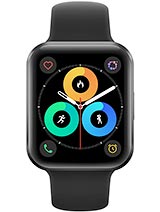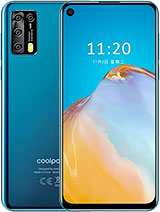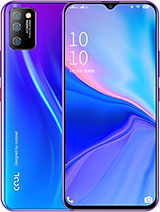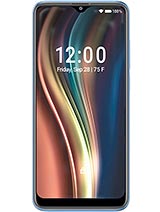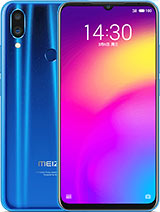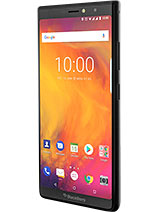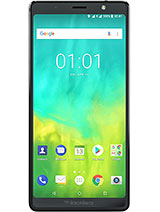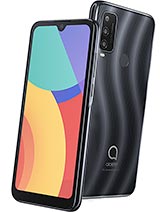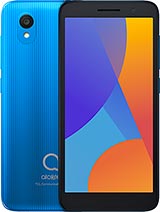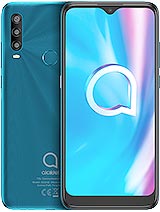Are Linux Smartphones about to KILL Android? By Mrwhosetheboss
So over the last week, I've been using three smartphones. I've been using an iPhone 12 Pro max running iOS, uh, Samsung Galaxy note, 20, ultra running android, you're, probably quite familiar with these two, but also a Libra five running something called Linux. The unboxing experience is a little different to the standard rectangular template to the phone's on top and then below that we've got a power, brick, an USB charging cable, a pair of actually pretty nice looking earphones and a couple of adapters, nothing crazy inside. But look at this thing. It looks like the company just took every single current trend in the smartphone market and said no there's, no fancy triple camera setup, there's no gradient finish: no metal trim, no slim glass construction, and yet this is still 800. So what is going on? Okay, if you think about the smartphone market, now we're kind of spoiled.
We have access to so many games and apps and features, and most of them are free. We've got Google Maps for navigation. Furthermore, we've got Instagram to keep us connected. Furthermore, we've got an app that tells you the best points in a movie to take a toilet break for free. Well, that sounds great, but at the same time, people are also becoming increasingly aware that for any app that's free, it's not free, because the company was feeling super generous.
That day, it's usually free, because when a company is not charging, you directly you're the thing being sold their money will instead be coming from selling you your data to advertisers. You can use it to understand you better and then serve you adverts that they know you're going to like, and I think the reason that people have only started talking about all this privacy stuff now is that we didn't realize just how much data was being collected, see almost every app that's built to earn money in some shape or form is closed source, meaning that the code of the app and the volume of info it's learning about you are hidden. It's only visible to whoever made them and it kind of has to be that way like if one day Instagram decided to make their code public, then someone could just copy that code. Take out the adverts and repost the ad free version of Instagram. The whole business model would just kind of break down, so this is where Linux devices like this come in.
You can think of Linux as the freedom software, in that it's 100 open source. Every line of code on every app on this phone is publicly available. So companies can't spy on you or abuse your data, because if they did, everyone will be able to see it, and so, if you actually take a closer look at this Librium 5, you realize that while yes, its construction does probably resemble a graphical calculator more than it does a modern-day flagship. The privacy features are insane like they've, not just said that every app on here is open source, but they've actually gone to the extent of only picking components such that the drivers for those components. The kind of bits of software that tell them how to run are also open source and for the very few bits for which they absolutely couldn't the Wi-Fi card and the mobile data.
Modem they've actually physically separated those pieces from the main circuit board, and that is what these are for. They've, given you switches so that the moment you're done with those parts, you can flip the corresponding switch and physically cut off any power going to them. So when you want to be, you are completely off the grid, plus there's also one here to physically disconnect your cameras and your microphone, and you can even actually just whack off the back door to remove the battery. It's been a long time since phone's been able to do that so yeah, it's kind of nuts, but privacy is actually only one of the perks of Linux. There's six more and if you're enjoying this video, the sub to the channel would be sourcing.
The first perk is that Linux, being a simpler software than full-blown android with just fewer services running in the background and simpler animations, has way higher performance with equivalent hardware like, even though this thing's powered with a pretty weak chip. Most things happen instantaneously. Two, it's stable because the code is public. Other users can very quickly bug fix problems like if Samsung came out with a new android phone and had a major bug, you're generally just sitting there waiting for them to update it with Linux. The power is in the user's hands.
It could be done overnight. Three is that, unlike android and iOS, which are heavy operating systems with massive gigabyte plus updates that often slow down older devices, the goal here is to have phones that feel just as good, if not better, eight to ten years down the line. Four, there is still an app store here with just about everything on it also open source. You don't have to create 16 different accounts on your phone. You don't have to enter your banking details just to download an app and there's not a single advert in sight.
Five there's, no such thing as Linux. Mobile the Linux here is the same Linux that you would get on a computer, so you can use the exact same desktop applications. In fact, it's kind of funny. When you get the low battery warning on this phone, it thinks it's a laptop and six. The final cherry on top is that Linux is built by individuals or small groups of developers and so, as a result, a're supporting people as opposed to large tech corporations.
If you care about that and b, there isn't just one version of it: there's actually a dozen different Linux OS's that you can download, and I've got some right here. So what's this a Google nexus 5 right well turn it on, and it's actually running, Ubuntu touch, one of the more well-supported options, and bearing in mind that this is a seven-year-old smartphone now it looks and runs amazing. It's got a similar status bar at the top to android, but with a pretty clever ability to actually access. Almost every setting without leaving it, it's got a much more robust store too versus the Libra and to give you an idea of the responsiveness. This is me turning the screen on and off versus the 2020 iPhone 12 Pro max.
Remember. Seven-year-old phone, I've got a Sony, Xperia 10, a 2019, mid-ranger, and this one's running sailfish OS, which is probably my favorite Linux software. To date, it's beautifully animated, it's very easy on the eyes and everything works with swipe gestures, which is so intuitive that once you've adjusted to it, you really wish other phones. Did it too, oh yeah, and have a look. How this thing handles themes, just swipe down tap a theme, and it's done new-look plus by moving your notifications from the status bar up top to a separate screen on the side.
Selfish has a less cluttered, aesthetic versus android one. That also means a bit less reaching. So you get the idea. Linux has stuff going for it, but at the same time it's got three problems, and they're, not small problems. The first is price.
This Librium five is eight hundred dollars. Why is it eight hundred dollars, given that it has the components and the build quality of an android phone? That's a quarter of that! Well, it's the cost of being this privacy respecting see with almost every one of these ultra-high performance, but somehow ultra affordable, android phones that come out. It's almost always an ulterior motive. Most of them can only afford to be cheaper because they either bake in adverts or they have contracts with software companies to pre-install their applications, or they're, acting as a portal to sign people up to other services from the company with a Linux phone, the only profit this company is making is at the point of sale, and so, as a customer, you got to pay for that two choice. You might be wondering why if I got such random phones to show you Linux like a nexus 5 and a Xperia 10? Well, it's because while you can technically install Linus on just about, I think I said Linus.
While you can technically install Linux on just about any phone that runs android. If you wanted to buy a phone with Linux, pre-installed on it, you've got very limited choice but, most importantly, there's an app problem see in order for a developer to spend time making a really great app. They need a profit incentive. They need to be able to either charge customers directly or sell customer data to advertisers, but neither of these two really work with open source like if I try and charge you for an app, but the code is public, then someone's just going to copy that code and publish their own version for free. So when you're building an app for Linux, you've pretty much got to rely on donations, and it's not really a very sustainable business model.
So you're not going to get Google Maps here, you're not going to get just about every smartphone game you might be used to playing. You know when android and iOS users say: oh there's an app for that. Well, with Linux, there often isn't, for example, there's a guy on YouTube called Chris Titus tech, who seems to be a huge advocate of Linux and privacy benefits. But even he tried really hard to live using just Linux and struggled. He found himself in unnecessary traffic jams wishing he had Google Maps that could have alerted him.
Otherwise, he found himself wishing he could manage his YouTube comments using the YouTube app, but he couldn't so Linux. Is it the future or is it dead in the water? Well, I ended up actually having quite a long chat with the guys behind the Libra phone, and I think it's a case that they know that the day this phone goes public, it's not going to be an android killer, but at the same time, they're also surprisingly, confident that given some time, they will be a major threat because people are more and more wanting to keep their data to themselves. And one thing that I did think was very interesting. Is that because android is just a super specialized version of Linux, Linux technically has the ability to run android apps, and it could run them within a sort of container a metaphorical box such that all those background processes and the tracking that comes with android apps could stay within that box and wouldn't be able to reach out into the rest of your phone. That said, my personal take is that it's a little late.
I think the concept makes sense and if this was how things were established right from the start, if, let's say people were very used to the idea of all apps being open source and any company that tried to make a closed source app was instantly publicly shamed, then yes, Linux phones, probably would have flown, but I just think that we're at a stage where we're past that I think the big tech companies almost have their claws sunk in a little too deep. I think that things like YouTube and Instagram they're almost too integral to people's lives for them to give up now like yes, it is technically possible for someone else to come along and build YouTube and Instagram equivalents that are open source, but who's going to do it for little to no profit incentive. Furthermore, I could maybe see it being used in government sectors where they need to avoid tracking at all costs. On that note, potentially criminals too, but I couldn't see any normal user born past the year 2000, who are quite adjusted to the idea of handing over their GPS location, their biometrics. I can't imagine that generation ever picking Linux over android or iOS, okay, there's one final option, and it's a little less extreme than jumping ship to Linux, but it is a way that a growing number of people are finding a bit more control d, googled android, see.
If you dial back android to its very base, it is actually 100 open sources. It's called the android open source project or AOSP. There's no google services, there's no data collection at all. All that stuff happens after google puts their apps in, so I've not used this, but there's actually a pretty highly rate dos out there right now called the EOS they've taken the AOSP android, but instead of adding the normal google apps on top of that they've added open source alternatives like Nextcloud instead of Google Drive and the advantage of doing it. This way is that the store here does let you install normal android apps, if you want to, but it'll just pre-scan them and tell you how well those apps protect your privacy so feels like a pretty solid middle ground, but still probably not for me anyway.
Thanks for watching my name is Aaron. This is Mr who's, the boss, and I'll catch you in the next one. You.
Source : Mrwhosetheboss

